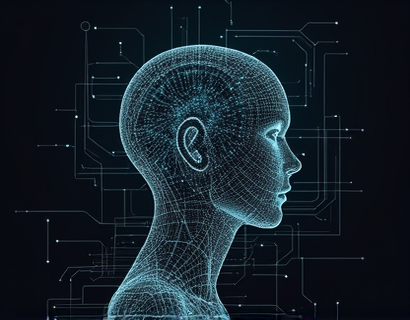Unlocking Efficiency: Harnessing Intelligent AI for Personal and Professional Task Management
In the fast-paced world of today, managing tasks efficiently is crucial for both personal and professional success. The integration of Intelligent AI into task management systems represents a significant leap forward, offering unprecedented levels of efficiency and productivity. These advanced AI agents are designed to streamline personal and business operations, allowing individuals and organizations to focus on high-priority activities while automating routine and repetitive tasks. This article delves into the transformative power of Intelligent AI in task management, exploring how it can redefine productivity and enhance daily routines.
The concept of using AI for task management is not new, but recent advancements have made these systems more sophisticated and user-friendly. Intelligent AI agents can understand context, learn from user behavior, and adapt to individual preferences, making them invaluable tools for managing complex task portfolios. These agents can prioritize tasks based on urgency and importance, delegate tasks to team members, and even predict potential bottlenecks before they occur. By integrating such technology into daily operations, users can achieve a higher level of productivity and efficiency.
Understanding Intelligent AI in Task Management
Intelligent AI in task management is built on several key technologies, including machine learning, natural language processing, and predictive analytics. Machine learning algorithms enable AI agents to learn from past tasks and user interactions, improving their performance over time. Natural language processing allows users to interact with these agents using natural language commands, making the system more intuitive and accessible. Predictive analytics helps in forecasting task completion times and resource requirements, ensuring that deadlines are met and resources are utilized optimally.
One of the primary benefits of Intelligent AI in task management is its ability to automate routine tasks. For instance, scheduling meetings, sending reminders, and managing emails can be handled seamlessly by AI agents. This automation not only saves time but also reduces the cognitive load on users, allowing them to focus on more strategic and creative aspects of their work. By offloading mundane tasks, professionals can allocate more time to high-value activities that drive growth and innovation.
Enhancing Personal Productivity
For individuals, Intelligent AI can significantly enhance personal productivity by managing daily tasks and routines. Imagine starting your day with a personalized to-do list that prioritizes tasks based on your goals and availability. AI agents can integrate with your calendar, email, and other productivity tools to create a comprehensive task list that is both relevant and actionable. This level of integration ensures that nothing falls through the cracks, and you stay on track throughout the day.
Moreover, Intelligent AI can help in time management by providing insights into how you spend your time. Through detailed analytics, users can identify time-wasting activities and adjust their schedules accordingly. For example, if the AI detects that you spend a significant amount of time responding to emails, it can suggest batch processing emails during specific times of the day to minimize interruptions. This tailored approach to time management can lead to a more balanced and productive lifestyle.
Boosting Professional Productivity
In a professional setting, the benefits of Intelligent AI are equally profound. Teams can use AI agents to manage project workflows, assign tasks, and track progress in real-time. This level of visibility ensures that everyone is aligned and working towards common goals. AI agents can also facilitate better communication by summarizing meeting notes, action items, and follow-up tasks, reducing the need for lengthy meeting minutes and follow-up emails.
Another critical aspect is resource optimization. AI can analyze project requirements and suggest the most efficient allocation of resources, whether it's personnel, budget, or equipment. This ensures that projects are completed on time and within budget, minimizing waste and maximizing output. For managers, this means less administrative work and more time to focus on strategic decision-making and leadership.
Seamless Integration and User Experience
One of the key factors that make Intelligent AI in task management effective is its seamless integration into existing workflows. These systems are designed to be user-friendly and adaptable, ensuring that they fit smoothly into your daily routine without causing disruption. Whether you're using a desktop application, a mobile app, or a web-based platform, the user experience is intuitive and straightforward.
For example, AI agents can be integrated with popular productivity tools like Google Calendar, Trello, and Slack, allowing for a cohesive and unified approach to task management. Users can receive notifications, updates, and reminders through their preferred channels, ensuring that they stay informed and on track. This flexibility makes Intelligent AI accessible to a wide range of users, from tech-savvy professionals to those who are new to AI technology.
Case Studies and Real-World Applications
To better understand the impact of Intelligent AI in task management, let's look at some real-world applications and case studies. In the healthcare industry, AI agents have been used to manage patient schedules, appointment reminders, and follow-up tasks. This has led to improved patient satisfaction and more efficient use of medical staff time. Similarly, in the retail sector, AI has been employed to manage inventory levels, customer interactions, and promotional activities, resulting in increased sales and customer loyalty.
In the creative industry, AI agents assist artists and designers by managing project timelines, collaborating with team members, and handling administrative tasks. This allows creatives to focus on their core work, leading to higher quality outputs and faster project turnarounds. These examples demonstrate the versatility and effectiveness of Intelligent AI in various industries, highlighting its potential to transform task management across different sectors.
Challenges and Considerations
While the benefits of Intelligent AI in task management are clear, there are also challenges and considerations to keep in mind. One of the primary concerns is data privacy and security. AI agents often require access to sensitive information, and ensuring that this data is protected is paramount. Organizations must implement robust security measures and comply with data protection regulations to build trust and confidence in AI technology.
Another consideration is the initial setup and training required to get AI agents up and running. While the long-term benefits are significant, the upfront investment in terms of time and resources can be a barrier for some. However, as AI technology continues to evolve, these barriers are becoming less significant, and more user-friendly solutions are emerging.
Future Trends and Innovations
The future of Intelligent AI in task management is promising, with several trends and innovations on the horizon. One such trend is the integration of AI with augmented reality (AR) and virtual reality (VR) to create immersive task management experiences. Imagine being able to visualize project timelines and task dependencies in a 3D environment, making it easier to understand complex workflows and collaborate with team members remotely.
Another exciting development is the advancement of emotional AI, which can detect and respond to user emotions, providing a more empathetic and personalized experience. This can be particularly beneficial in high-stress environments, such as customer service or emergency response, where emotional support is crucial.
Additionally, the rise of edge computing will enable AI agents to process data locally, reducing latency and improving response times. This is especially important for real-time task management and decision-making, ensuring that users receive immediate feedback and support.
Conclusion
Intelligent AI has the potential to revolutionize task management, offering unparalleled levels of efficiency and productivity. By automating routine tasks, providing insights, and adapting to individual needs, AI agents can help individuals and organizations achieve more in less time. As the technology continues to evolve, the integration of AI into task management will become more seamless and intuitive, further enhancing its value and impact.
Embracing Intelligent AI is not just about staying current with technological advancements; it's about unlocking your full potential and achieving greater success in both personal and professional endeavors. By leveraging the power of AI, you can transform the way you manage tasks, leading to a more productive, efficient, and fulfilling life.











































